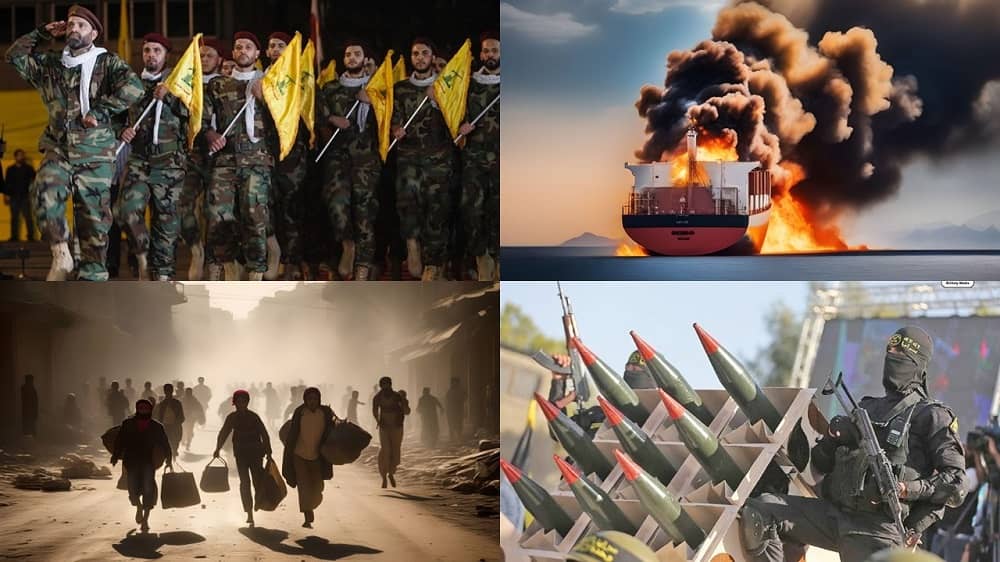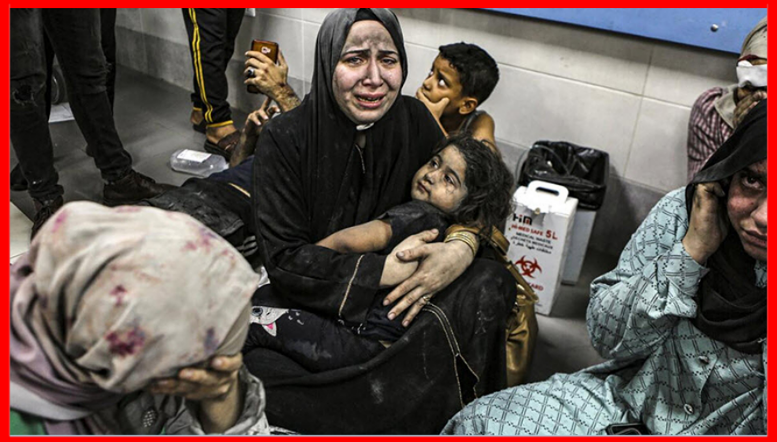
Recently, top officials of the Iranian regime, including Ali Khamenei, have been consistently denying any involvement in the October 7 attacks.
However, their statements to the domestic audience paint a different picture, revealing a regime deeply concerned with internal stability and less with international consequences. This concern stems from a series of uprisings that have rocked the country since 2017.
On November 24, Ezzatollah Zarghami, Iran’s Minister of Tourism, admitted on state television his past role in missile production and training Hezbollah and Palestinian forces in underground tunnels. Ali Saeedi Shahroudi, head of the Political-Ideological Office of the Commander-in-Chief, echoed this sentiment on November 18, acknowledging Iran as the “pole of the Islamic world” and a guide for movements in the region.
Mohammad Taghi Osanlou, a commander of the Islamic Revolutionary Guard Corps (IRGC), also confirmed on November 24 the regime’s far-reaching military involvement in Lebanon, Syria, and Palestine.

The regime’s president, Ebrahim Raisi, on the same day, spoke of disrupting the equations of Islamic and regional countries, highlighting the regime’s influence in regional conflicts.
Ghorbanali Dori Najafabadi, a representative of the Supreme Leader, boasted on November 25 about Iran’s strategic depth extending across the Middle East and into the Indian Ocean and the Sea of Oman. Foreign Minister Hossein Amir-Abdollahian, in mid-October, linked the defense of Gaza to Iran’s security.
Amidst these bold claims, some officials openly discuss the political benefits of their war-mongering. Parviz Sorouri, a former parliament member, on November 29, linked the success of Hamas to positive impacts on Iran’s future elections. On November 28, the IRGC-affiliated Hamshahri Daily credited the recent calm in Iran to the war in the occupied territories, citing a decrease in dissent.
Ezzatollah Zarghami, the #Iranian regime's Minister of Tourism and Cultural Heritage, admitted on live state TV that he personally engaged in training and arming militias, visiting their underground tunnels. #GazaConflict pic.twitter.com/eUyRumqu5R
— NCRI-FAC (@iran_policy) November 24, 2023
The newspaper also targeted the Mujahedin-e Khalq Organization, blaming them for unrest in autumn 2022. Ahmad Ghaderi Abyaneh, a political analyst, on November 13, referred to the Al-Aqsa Storm as “divine assistance” in preventing uprisings. Javad Enayat, governor of South Khorasan, on November 26, claimed that stability in Iran leads to resistance against the U.S. and its allies in the Islamic world.
These statements reveal a regime more focused on maintaining internal power and influence in the region than on adhering to international norms or addressing foreign concerns about its activities.
#Iranian regime’s FM officially expresses ownership of the #Gaza crisis pic.twitter.com/IVqMPSkhPC
— NCRI-FAC (@iran_policy) October 19, 2023

MEK Iran (follow us on Twitter and Facebook), Maryam Rajavi’s on her site, Twitter & Facebook, NCRI (Twitter & Facebook), and People’s Mojahedin Organization of Iran – MEK IRAN – YouTu
